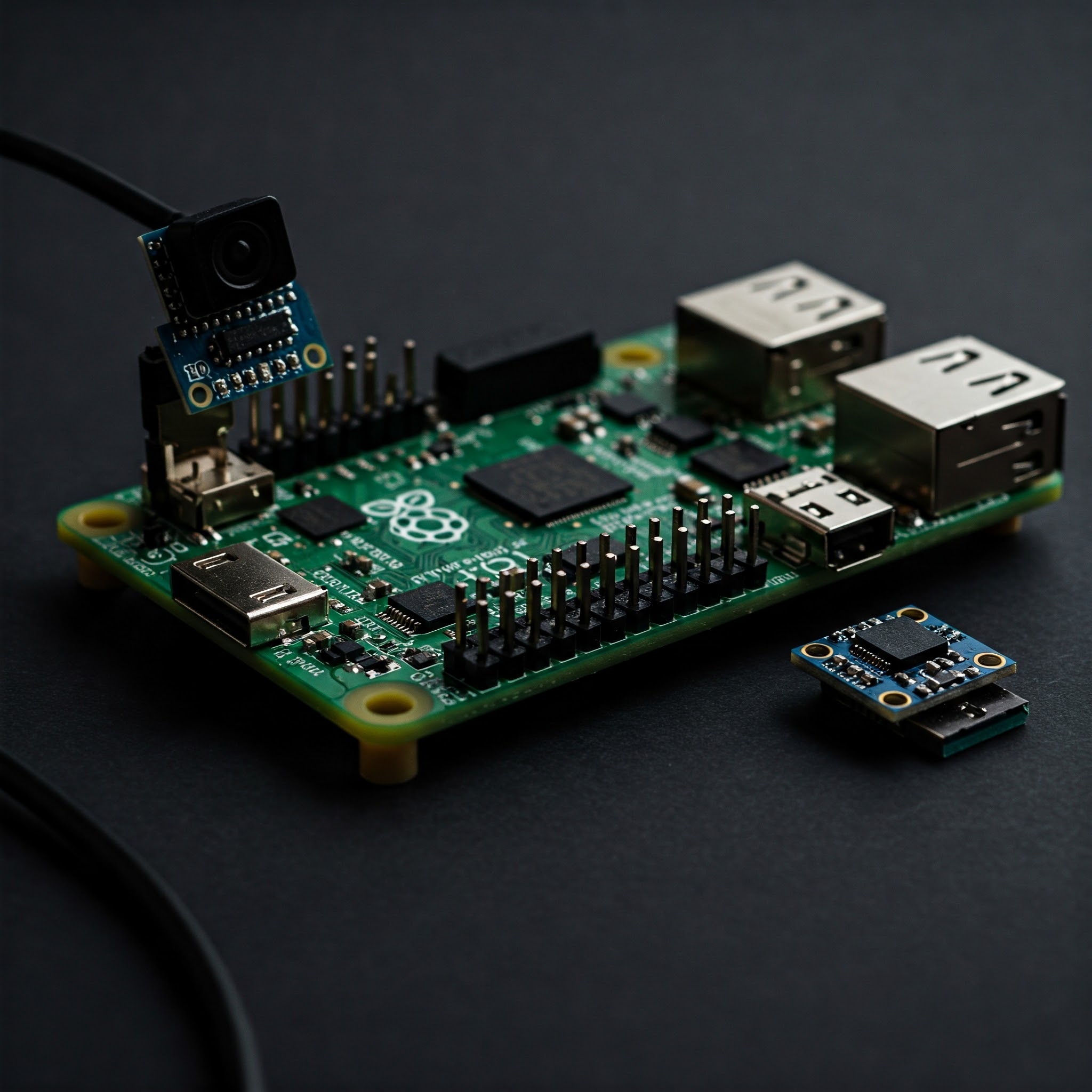For many years, makers and tech enthusiasts have favored the Raspberry Pi, a small but potent computing device. These projects are now reaching previously unattainable levels of creativity thanks to the expanding availability of artificial intelligence. Here are five unique Raspberry Pi projects that successfully use AI to push the boundaries of what is possible: …..
1. The “Sentient Garden”: AI-Driven Plant Ecosystem Monitor

Sentient Garden”: AI-Driven Plant Ecosystem Monitor
Imagine a garden that proactively identifies potential issues before they arise and understands the unique requirements of each plant, beyond merely supplying water. This initiative creates a “sentient garden” that utilizes artificial intelligence to evaluate plant health, predict growth patterns, and autonomously manage its environment.
How it works:
Plant Monitoring: The Raspberry Pi features a camera module along with environmental sensors that enable it to take photographs of plants and track variables such as temperature, humidity, and soil moisture levels.
AI Analysis: The acquired images undergo analysis through image recognition algorithms to identify diseases and various irregularities. Additionally, the sensor data is utilized to forecast the most favorable growing conditions.
Autonomous Control: According to the analysis conducted by the AI, the Raspberry Pi is capable of autonomously modifying watering schedules, lighting, and various environmental parameters to establish optimal conditions for plant growth.
This Projects offers an excellent opportunity to explore artificial intelligence, computer vision, and the Internet of Things. Additionally, it provides an enjoyable and fulfilling method for cultivating your own plants.
Additional features:
Remote monitoring: Access your garden’s status from any location globally through a smartphone or tablet.
Customizable: The system can be tailored to address the unique requirements of your plants.
Educational: This initiative serves as a valuable resource for teaching students about artificial intelligence, computer vision, and the Internet of Things (IoT).
For those seeking a demanding yet fulfilling Raspberry Pi project, the “Sentient Garden” presents an excellent choice.
2. The “Personalized Contextual Awareness Hub”: AI-Enhanced Home Automation

Personalized Contextual Awareness Hub
This initiative elevates home automation by establishing a contextual awareness hub. Utilizing Raspberry Pi, microphones, and cameras, the system evaluates your daily habits, preferences, and emotional signals. It can subsequently modify lighting, temperature, music, and other home settings to foster a tailored and adaptive environment.
How it works:
Data Acquisition: The Raspberry Pi is outfitted with microphones and cameras to gather audio and visual information regarding your activities and surroundings.
AI Processing: The collected data undergoes analysis through AI algorithms to recognize your voice, interpret your facial expressions, and ascertain your location. The system also adapts to your daily habits and preferences over time.
Automated Management: Informed by the AI analysis, the Raspberry Pi can autonomously modify your home environment. For instance, it can illuminate the lights upon your entry into a room, play your preferred music at wake-up time, and regulate the temperature according to your emotional state.
This project serves as an excellent opportunity to explore AI, machine learning, and the Internet of Things (IoT). Additionally, it offers an enjoyable and fulfilling means to enhance the comfort and efficiency of your home.
Additional features:
Voice Activation: You can manage your home environment through voice commands.
Facial Recognition: The system is capable of identifying your face and adjusting settings based on the individuals present in the room.
Emotional Detection: The system can sense your emotional condition and modify settings accordingly.
3. The “AI-Driven Smart Recycling System”: Sorting for a Sustainable Future

AI-Driven Smart Recycling System
This Projects seeks to transform the recycling process through the development of an AI-powered smart sorting system. Utilizing Raspberry Pi and camera modules, the system is capable of recognizing various recyclable materials and sorting them automatically. This innovation has the potential to enhance recycling efficiency and minimize waste.
How it Works?
Material Recognition: A camera module attached to the Raspberry Pi captures images of recyclable items.
AI Processing: The images are processed using image recognition algorithms to determine the type of material.
Automated Sorting: Following the AI analysis, the Raspberry Pi directs robotic arms or other sorting devices to automatically allocate the materials into the appropriate bins.
This project serves as an excellent opportunity to explore AI, computer vision, and robotics while also contributing positively to your community.
Additional features:
Real-time Feedback: The system offers immediate feedback to users regarding their recycling practices.
Customizable: Users can tailor the system to identify various types of materials.
Educational: This project can serve as a teaching tool for students on topics related to recycling and environmental sustainability.
These projects highlight the significant possibilities that arise from integrating Raspberry Pi with artificial intelligence. Regardless of whether you are an experienced creator or a novice with a keen interest, these concepts can motivate you to delve into the fascinating realm of AI-driven do-it-yourself initiatives.
